 How did our medieval English counterparts really sound? Would we have been able to understand them?
How did our medieval English counterparts really sound? Would we have been able to understand them?
An app developed by a team at the University of Saskatchewan, Canada, with the help and encouragement of medieval scholar and Monty Python alum Terry Jones, has made it possible to hear and see the General Prologue of the Canterbury Tales on your phone, tablet or computer.
The free app is available from iPhone’s app store, Google Play and at http://www.sd-editions.com/CantApp/GP/.
The app allows you to hear Chaucer’s words as they would have sounded in his day while the prologue is displayed in both Middle English and modern English. The app displays one or two lines at a time, advancing as the narration proceeds. It’s a fascinating way to learn more about Chaucer and Middle English. You can also see the full prologue in either Middle English or its modern translation.
You also can just listen to the narration like a podcast, but without the modern translation to guide you, it can be a bit difficult to understand. If you want to listen to the Canterbury Tales in modern English, you can find downloadable audiobooks and audiobook CDs at most libraries.
If you’re not interested in the text or you don’t want to download another app, you can see the 2015 performance of the prologue at https://artsandscience.usask.ca/english/research/performances/the-general-prologue-in-historically-based-performance.php.
This was one of the last things Terry Jones worked on before he died earlier this year, and the team dedicated the app to him.
Peter Robinson of the University of Saskatchewan described to Open Culture how Jones’ behind-the-scenes influence helped drive this project. “‘His work and his passion for Chaucer was an inspiration for us. We talked a lot about Chaucer and it was his idea that the Tales would be turned into a performance.'”
The Open Culture website noted that “The strangeness of Middle English to our eyes and ears can make approaching the Canterbury Tales for the first time a daunting experience. The Chaucer app is an excellent research tool for scholars, yet the researchers want ‘the public, not just academics to see the manuscript as Chaucer would have likely thought of it,’ says Robinson, ‘as a performance that mixed drama and humor.’ In other words, reading Chaucer should be fun.
“Why else would Terry Jones—a man who knew his comedy as well as his medieval history—spend decades reading and writing about him?”*
*”Terry Jones, the Late Monty Python Actor, Helped Turn Chaucer’s Canterbury Tales Into a Free App: Explore It Online,” Open Culture, http://www.openculture.com/2020/02/terry-jones-the-late-monty-python-actor-helped-turn-chaucers-canterbury-tales-into-a-free-app.html, retrieved April 25, 2020.

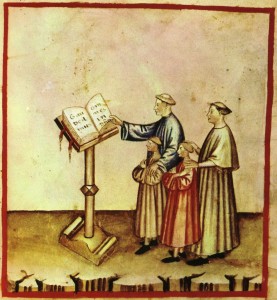

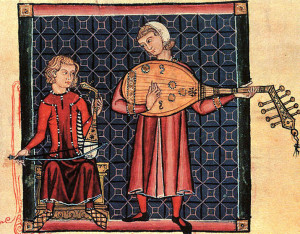
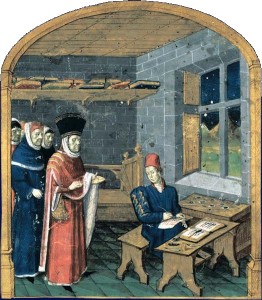
 The History Chicks
The History Chicks The Real Middle Ages
The Real Middle Ages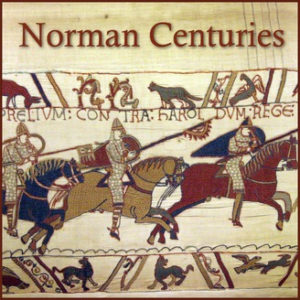 Norman Centuries
Norman Centuries  Dan Carlin’s Hardcore History
Dan Carlin’s Hardcore History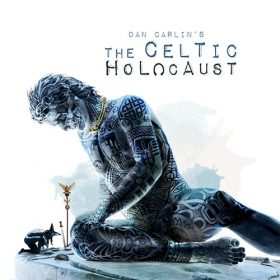 Each episode has its own webpage and artwork. The “Celtic Holocaust” episode’s striking artwork looks like the cover of a book. The page also includes a map of Caesar’s trips through Gaul and a list of “Tribes/Names/Places” with definitions. The first “King of Kings” episode begins with a brief video clip. That’s followed by a list of nearly 30 people and places with definitions. The third Persian episode’s webpage includes a map of the Battle of Plataea and a family tree of the ancient Persian kings. There’s pretty decent content to accompany each episode.
Each episode has its own webpage and artwork. The “Celtic Holocaust” episode’s striking artwork looks like the cover of a book. The page also includes a map of Caesar’s trips through Gaul and a list of “Tribes/Names/Places” with definitions. The first “King of Kings” episode begins with a brief video clip. That’s followed by a list of nearly 30 people and places with definitions. The third Persian episode’s webpage includes a map of the Battle of Plataea and a family tree of the ancient Persian kings. There’s pretty decent content to accompany each episode. The British History Podcast
The British History Podcast
You must be logged in to post a comment.